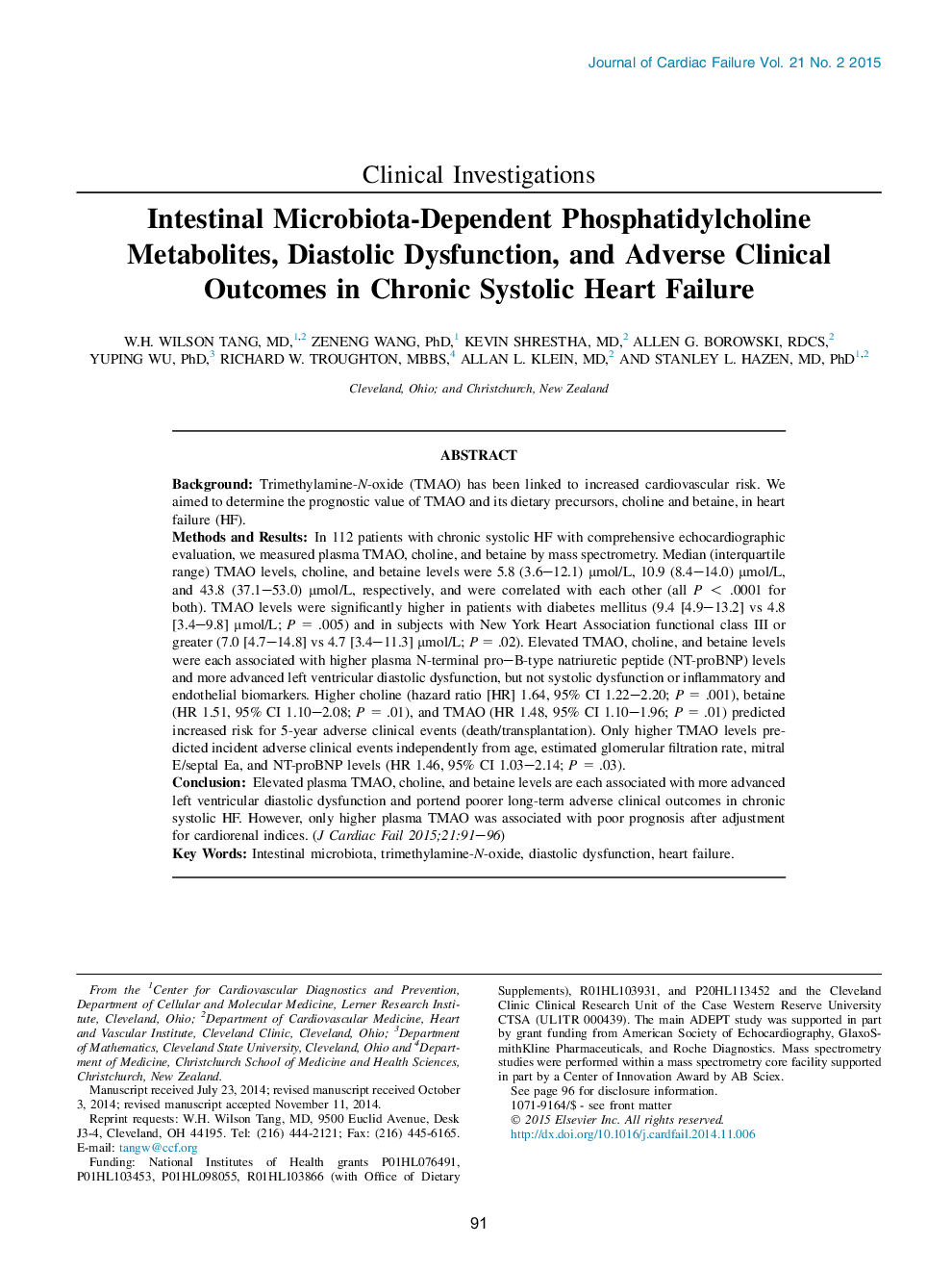| Article ID | Journal | Published Year | Pages | File Type |
|---|---|---|---|---|
| 2959054 | Journal of Cardiac Failure | 2015 | 6 Pages |
•Stronger prognostic value in TMAO than choline/betaine in chronic systolic HF.•Prognostic value of TMAO was independent of cardiorenal indices.•Correlations between metabolites with LV diastolic but not systolic dysfunction.•No correlations between metabolites and inflammatory biomarkers.
BackgroundTrimethylamine-N-oxide (TMAO) has been linked to increased cardiovascular risk. We aimed to determine the prognostic value of TMAO and its dietary precursors, choline and betaine, in heart failure (HF).Methods and ResultsIn 112 patients with chronic systolic HF with comprehensive echocardiographic evaluation, we measured plasma TMAO, choline, and betaine by mass spectrometry. Median (interquartile range) TMAO levels, choline, and betaine levels were 5.8 (3.6–12.1) μmol/L, 10.9 (8.4–14.0) μmol/L, and 43.8 (37.1–53.0) μmol/L, respectively, and were correlated with each other (all P < .0001 for both). TMAO levels were significantly higher in patients with diabetes mellitus (9.4 [4.9–13.2] vs 4.8 [3.4–9.8] μmol/L; P = .005) and in subjects with New York Heart Association functional class III or greater (7.0 [4.7–14.8] vs 4.7 [3.4–11.3] μmol/L; P = .02). Elevated TMAO, choline, and betaine levels were each associated with higher plasma N-terminal pro–B-type natriuretic peptide (NT-proBNP) levels and more advanced left ventricular diastolic dysfunction, but not systolic dysfunction or inflammatory and endothelial biomarkers. Higher choline (hazard ratio [HR] 1.64, 95% CI 1.22–2.20; P = .001), betaine (HR 1.51, 95% CI 1.10–2.08; P = .01), and TMAO (HR 1.48, 95% CI 1.10–1.96; P = .01) predicted increased risk for 5-year adverse clinical events (death/transplantation). Only higher TMAO levels predicted incident adverse clinical events independently from age, estimated glomerular filtration rate, mitral E/septal Ea, and NT-proBNP levels (HR 1.46, 95% CI 1.03–2.14; P = .03).ConclusionElevated plasma TMAO, choline, and betaine levels are each associated with more advanced left ventricular diastolic dysfunction and portend poorer long-term adverse clinical outcomes in chronic systolic HF. However, only higher plasma TMAO was associated with poor prognosis after adjustment for cardiorenal indices.
